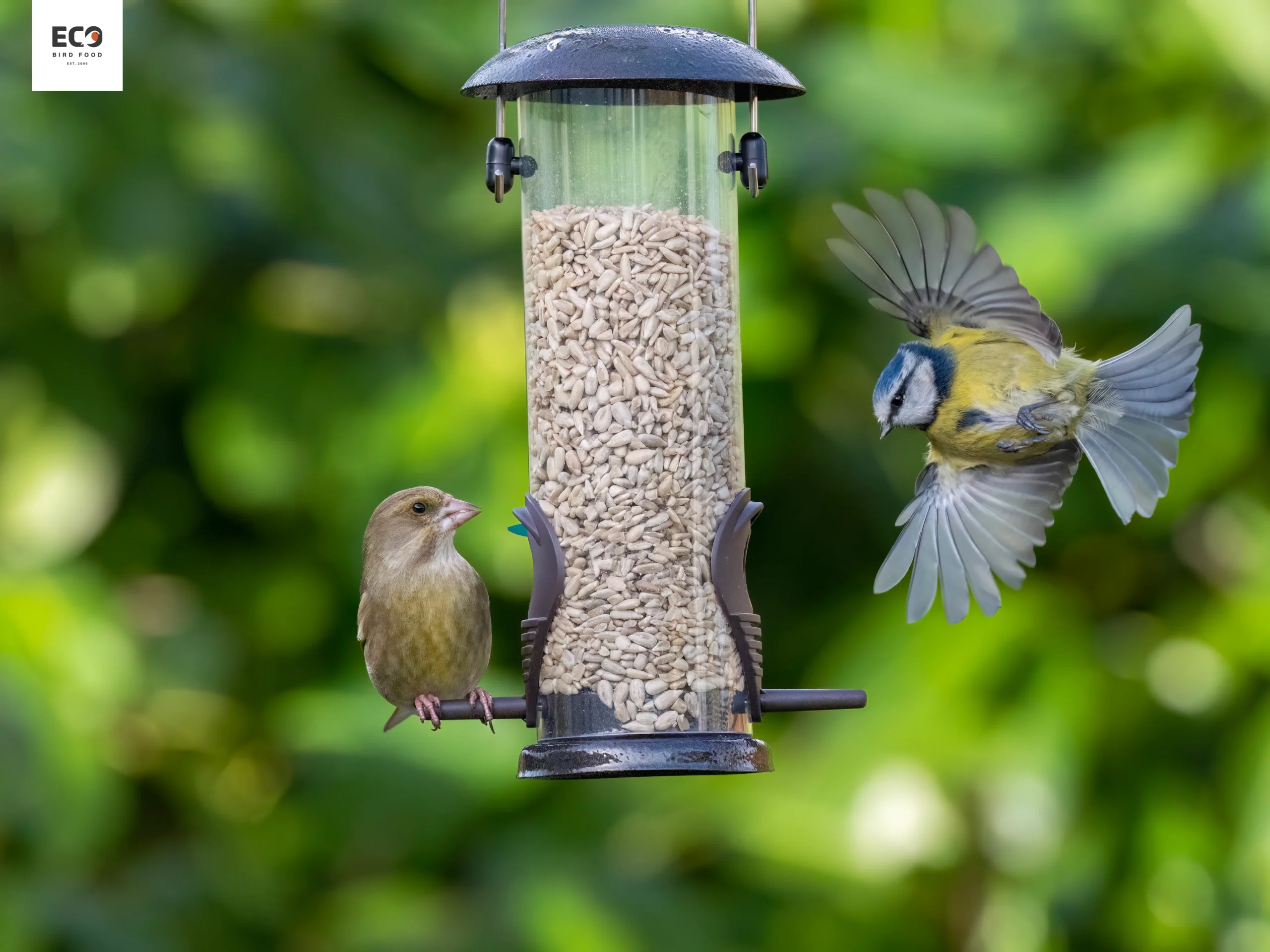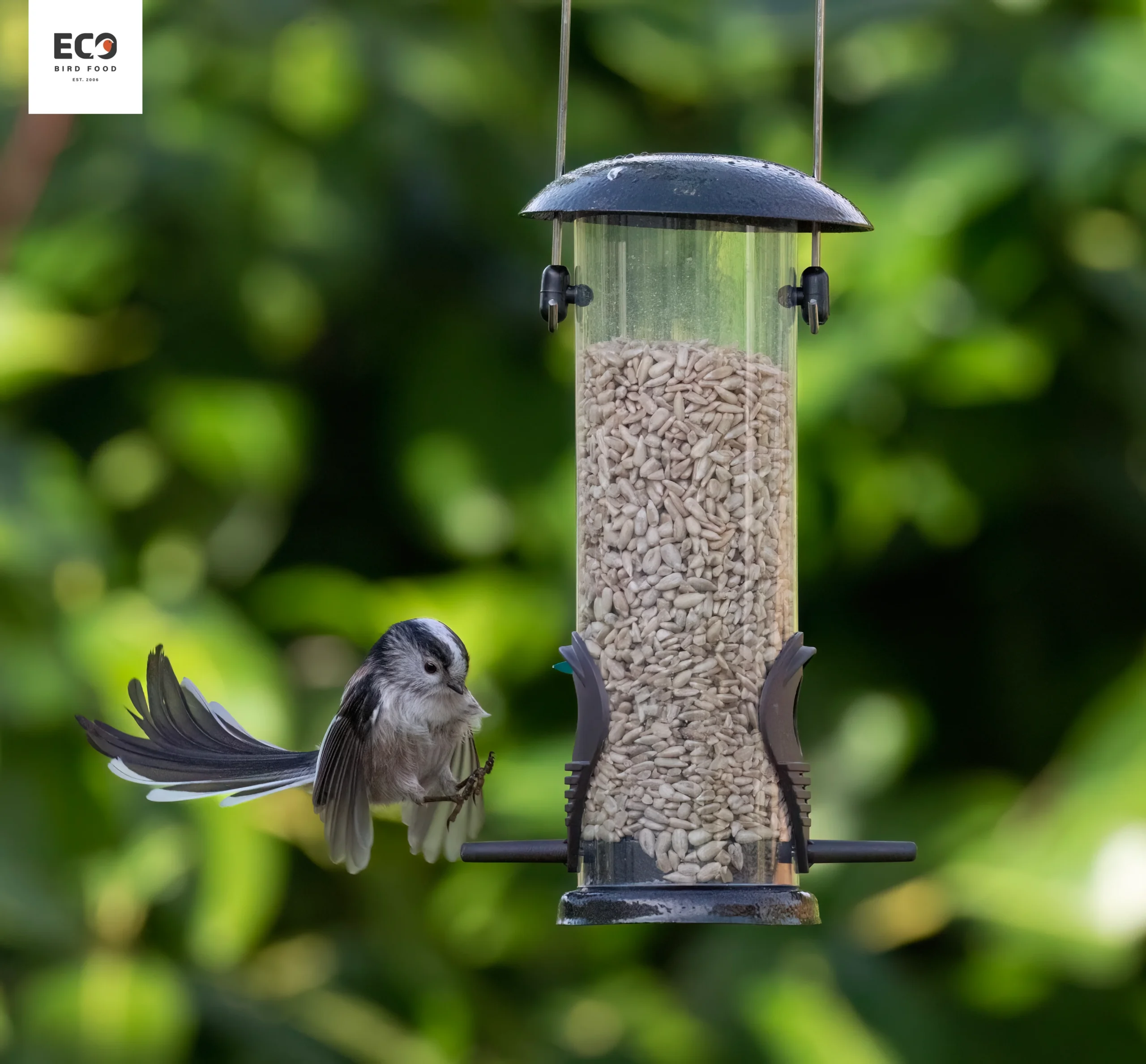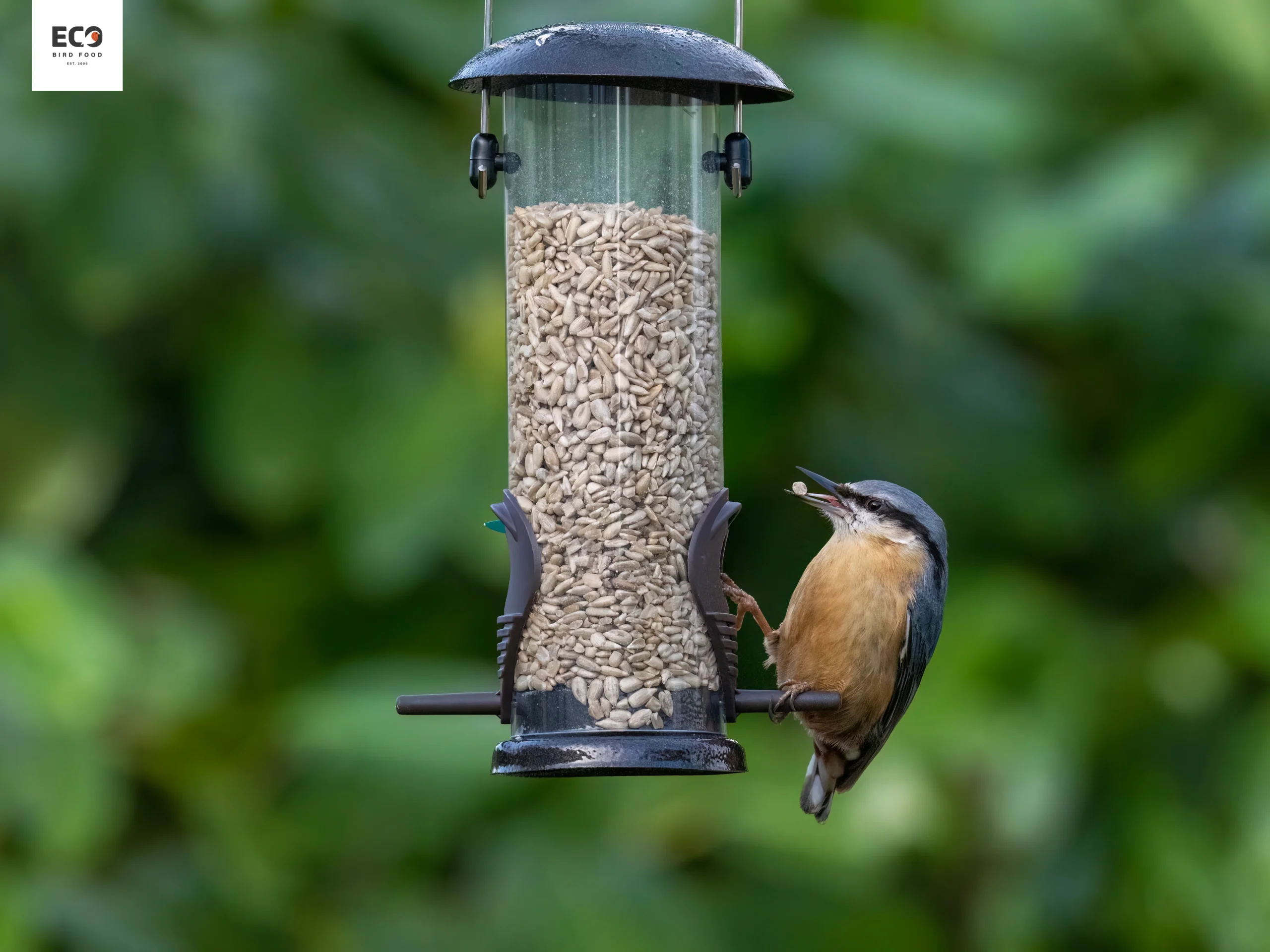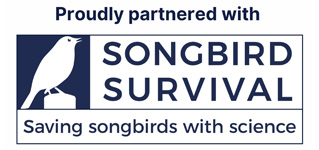Everything You Need to Know About Feeding British Birds Sunflower Hearts
Sunflower hearts are one of the best all-round food sources for feeding British birds. Packed with essential nutrients, these hulled seeds are easy to eat, making them a favorite among a wide range of garden birds. Plus as there’s no shells there’s no mess, and you’re therefore less likely to attract rodents. In this guide, we’ll explore why sunflower hearts are such a valuable addition to any bird feeding station, how to offer them effectively, and what types of birds you can expect to attract.
Why Choose Sunflower Hearts for Birds?
Sunflower hearts (de-hulled sunflower seeds) are a premium bird food choice, and here’s why they stand out:
- Highly Nutritious: Sunflower hearts are rich in oils, providing the high-fat content that birds need, especially in the colder months. They also contain proteins and vital nutrients that help birds stay healthy and energized.
- No Mess, No Waste: Unlike black sunflower seeds with shells, sunflower hearts fot birds are ready to eat, meaning less mess beneath your feeders. Birds can consume them quickly, leaving behind fewer discarded husks.
- Easier for Small Birds: Because the husk has been removed, smaller birds can eat sunflower hearts without expending energy on breaking shells. This makes them particularly appealing to finches, robins, and tits.
The Benefits of Sunflower Hearts in Different Seasons
Feeding sunflower hearts can benefit British birds year-round, but they are especially valuable in different seasons for different reasons:
- Winter Energy Boost: During colder months, birds require more calories to stay warm and survive freezing temperatures. Sunflower hearts provide an energy-dense food source that helps birds maintain their body heat.
- Spring & Summer Nutrition: As birds breed and raise young chicks in the spring and summer, sunflower hearts provide an easy-to-digest food that gives parent birds the energy they need to forage for their nestlings. They’re also perfect for fledglings learning to eat solid foods.
Autumn Preparation: As autumn approaches, birds start to stock up on fat reserves to prepare for winter. Offering sunflower hearts helps them build up the energy needed for migration or survival in the coming colder months.
Eco Bird Food's Premium Sunflower Hearts for Birds
At Eco Bird Food, we understand the importance of providing the highest quality food for British birds. Our Sunflower Hearts 20kg are only £35.99 when purchased on subscription. We appreciate that a lot of our customers do not want to handle a 20kg bag of sunflower hearts, so our maximum bag size is 7kg. If you order 20kg of sunflower hearts from Eco Bird Food you will receive 3 bags of 7kg, 7kg, and 6kg, all our packaging is 100% biodegradable and recyclable. Every bag is filled with bakery-grade seeds, the same as you’d get on a Tesco finest mixed seed loaf of bread.
- Bakery-Grade Quality: Our sunflower hearts are carefully sourced to ensure they are clean, fresh, and free from fillers or unwanted debris. This guarantees birds are getting only the best food.

Which Birds Love Sunflower Hearts?
Sunflower hearts are a favorite for many bird species across the UK. Here are just a few of the birds you might attract to your garden:
- Goldfinches: Their sharp beaks make it easy for them to eat sunflower hearts, and they’ll flock to feeders offering these seeds.
- Tits (Blue, Great, Coal): Tits are agile birds and will frequently visit feeders containing sunflower hearts. Their high energy needs make these seeds an excellent choice.
- Robins: Robins typically prefer foraging on the ground, but they won’t hesitate to snack on sunflower hearts if they’re available.
- House Sparrows: These social birds will often gather in large numbers at feeders filled with sunflower hearts, making them a common sight in gardens across the UK.
- Chaffinches & Greenfinches: Both species are big fans of sunflower hearts, often choosing these over other seeds. Greenfinch populations in the UK have declined by over 50% the past 10 years so if you see a Greenfinch feeding in your garden keep putting out the same food as you’re supporting the recovery of the population.

How to serve Sunflower Hearts for Birds to attract a variety of species
Offering sunflower hearts is easy and can be done in a variety of ways:
- Tube Feeders: Ideal for attracting finches and tits, tube feeders with small openings are perfect for holding sunflower hearts.
- Tray Feeders: Ground-feeding birds like robins and dunnocks prefer flat, tray-style feeders where they can perch comfortably while eating.
- Mix with Other Foods: While sunflower hearts are a great stand-alone option, you can also mix them with other high-quality foods, like suet or mealworms, to attract a wider range of species.

Common Mistakes to Avoid When Feeding Sunflower Hearts
While sunflower hearts are a fantastic choice, there are a few things to keep in mind to ensure birds get the most benefit:
- Don’t Overfill Feeders: Sunflower hearts can spoil if left out for too long. Offer only as much as birds can eat in a few days, especially in wet weather.
- Keep Feeders Clean: It’s essential to regularly clean your feeders to prevent mold and the spread of disease. This is particularly important when using oily seeds like sunflower hearts.
- Store Seeds Properly: Always store sunflower hearts in a cool, dry place to prevent them from going rancid.
Supporting British Birds Year-Round
By choosing high-quality bird food, and eco conscious packaging, like Eco Bird Food’s Sunflower Hearts 20kg, you’re helping ensure the birds in your garden are well-nourished and thriving.
Alongside sunflower hearts providing water, and shelter can turn your garden into a haven for wildlife, allowing you to enjoy the beauty of nature while supporting local bird populations.








